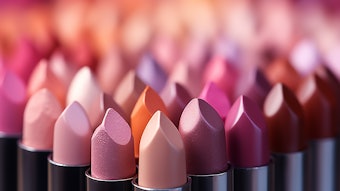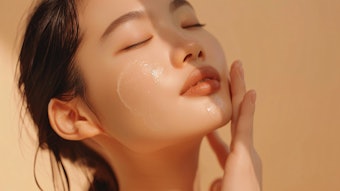
Until recently, beauty brands could treat sustainability and its varying synonyms and implications as a brand benefit. A green-focused mission, a sustainably sourced packaging story, vegan ingredients or a combination thereof was a way of differentiating a brand from the plethora of options in the market. No more.
Today, 94% of Gen Z and 87% of millennials expect sustainability to be a core value of a company. This demographic now makes up for more than half of the population, with Gen Z (defined as born in 1995 and beyond) comprising 25.9% and millennials (generally defined as individuals born between 1980 and 1995) comprising 24.5%.
How, then, can brands market themselves when sustainability is no longer a novelty, but an expectation?
Beauty Products as Identity Drivers
Younger generations in particular feel that brands that they purchase are not just for usability, but extensions their overall outlook, opinions and personalities. As such, 48% of these generations will abandon purchases if the brand does not fit their values.
Such micro-management puts brands under scrutiny to deliver a full-round marketing experience, from product efficacy to company values. Several brands have reacted by incorporating sustainability into their full-cycle product offering. For example, Aether Beauty, which uses vegan ingredients for a gem-infused color palette, features a recyclable, mirror-less and zero-waste package for its green consumers.
Coconut oil-based brand Love Beauty and Planet, with a simple name to its credit and no-frills ingredient-based product names, is lapped up by younger generations.
Legacy brands like Kiehl’s have been doing this for years, embracing the community and creating a cult following as a result.
On a more functional level, Veque Nails promises vegan ingredients for a smooth nourished canvas, and also gives back to charity, amplifying its match with youth oriented values.
Gen Z Requires Efficacy
The key difference between millennials and Gen Z can be summarized by statements like, “Millennials prefer products influenced by bargains,” and, “Gen Z prefers products that work and are trusted.”
About 43% of Gen Z compares prices when shopping, versus 51% of millennials, further signifying a shift in preferences away from prices and toward efficacy.
While conviction in a product delivering on its promise has always been of importance, brand claims are under more scrutiny than ever before and must stand up without the frills of marketing that thrived so well in the millennial era.
100% Pure, a simple name to its credit, offers fruit pigmented makeup and natural and cruelty free skin care, a proposition that is easy to understand.
To illustrate, coconut oil-based brand Love Beauty and Planet, with a simple name to its credit and no-frills ingredient-based product names, is lapped up by younger generations.
Meanwhile, Nue Co Skin Food has launched a SkinFood + Prebiotic made from whole foods and organic ingredients which, combined with smart marketing, sold out immediately with an additional 2,000 people on the waitlist.
Simple, Substantive Communication
Traditional sustainability marketing received mixed responses due to convoluted messaging that interlaced the synonym “green.” These are no longer enough.
Validated claims and clear descriptions of veganism, sustainable practices, recyclable packaging and the likes, are much better absorbed by Gen Z, 45% of which spend time researching ethical and sustainable brands. This is exemplified by statements like, “It’s going on my skin, so of course I will look at everything that is in it! Bonus points for brands that are local or good for the environment” (FIG or out [2018 proprietary data]).
The indication is again that tolerance and attention spans are dropping in the face of ad messaging, exemplified by reactions like, “I hate seeing ads trying to get to me when I’m trying to check out what my friends are doing on Instagram."
100% Pure, a simple name to its credit, offers fruit pigmented makeup and natural and cruelty free skin care, a proposition that is easy to understand. Drunk Elephant clearly communicates that its products are made without the “Suspicious 6”—essential oils, drying alcohols, silicones, chemical sunscreens, fragrances/dyes and SLS—using a combination of science and humor to communicate its proposition.
Formats of communication must also be relevant. While Gen Z spends most of its time on the phone, these consumers are hostile to digital advertising—interruptive search ads, display or video ads—and actually more receptive to traditional media.
The broad learning is that trust acquired by smartly and simply marketed indie brands develops cult followings.
For instance, only 25% of Gen Z has a positive attitude towards online search ads and 21% to video ads, compared to a significantly higher positivity by millennials at 42% and 36%, respectively.
The indication is again that tolerance and attention spans are dropping in the face of ad messaging, exemplified by reactions like, “I hate seeing ads trying to get to me when I’m trying to check out what my friends are doing on Instagram. I’d rather just see cool colors or get a demo at Sephora if I wanted a new eye shadow" (FIG or out [2018, proprietary data]).
It’s All About Relevance
Influencer marketing continues to be a simultaneously lucrative and dubious topic of marketing discussions.
The key to reaching a curious youth that is hyper-smartened by a steady diet of Google and social media is to choose influencers with relevance. The influencers have to match the core values of the youth and embrace more passive marketing to recommend product trials.
70% will generally pay more for sustainable products.
According to a survey conducted between similar demographic and psychographic groups of beauty consumers between 21 and 40, the preferences between the years of 2017 to 2019 showcased a slight reversal in the trust and clarity that this generation put on influencers, as well as a marginal shift in increased trust toward brands that they had already vetted (F-1; FIG or out proprietary data, 2019).
The broad learning is that trust acquired by smartly and simply marketed indie brands develops cult followings. These often work better than large-budget counterparts banking on an Insta-popular influencer.
How Important is Price?
The consumer’s ultimate willingness to pay for sustainability is a lingering issue with brands and manufacturers faced with price and resource pressures.
Thankfully, 40% of Gen Z and millennials will pay full price for items made in a sustainable or environmentally friendly way, and a whopping 70% will generally pay more for sustainable products.
With price no longer a penultimate driving force, clarity in marketing messages is more important than ever.
The New Normal
With a generation coming to terms with shopper behavior in a digital environment—having never seen a traditional shopping set up—marketing beauty products will continue to tread the dichotomous path of being socially relevant while delivering on product efficacy.
Sourabh Sharma is a seasoned marketer with a background in brand management, digital marketing, social media and management consulting, having worked for multinationals, startups and small businesses. He is the Head of Digital Marketing at FIG or out, a digital marketing and PR company and has been keynote and judge for conferences and brands. Sharma has undergraduate engineering and business degrees and MBA from the Wharton School, the University of Pennsylvania and the Rotterdam School of Management.










